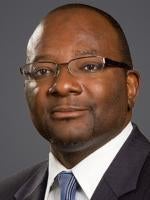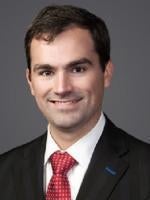The Consolidated Appropriations Act, 2021 (CAA) contained temporary relief measures aimed at addressing unused contributions to health flexible spending accounts (FSA) and dependent care assistance programs (DCAP).
On February 18, 2021, the Internal Revenue Service (IRS) released Notice 2021-15, providing additional COVID-19 relief measures and clarifying certain provisions of the CAA. The notice provides employers with several optional relief measures to assist cafeteria plan participants in making use of any FSA or DCAP contributions that were not (or could not be) used due to the COVID-19 pandemic, and which otherwise may have been lost under the general “use it or lose it” rules that apply to FSAs and DCAPs. The new guidance also allows employers to permit mid-year election changes under cafeteria plans for plan years ending in 2021 with respect to employer-sponsored health coverage. Prior guidance offered similar relief, but it was limited to mid-year elections made in the 2020 calendar year. The notice addresses the options introduced in the CAA and how the various options may interact with one another. Below, we have summarized some of the highlights from the notice.
Extended Spending Opportunities for FSAs and DCAPs
The temporary relief included in the CAA allows employers to amend their plans to allow carryovers or extended grace periods (but not both) for unused FSA and DCAP contributions from plan year 2020 to 2021, and from plan year 2021 to 2022. These options are available to employers regardless of whether their cafeteria plans previously provided for carryovers or grace periods at the end of the 2020 plan year. Balances carried over or available during a grace period will not be considered for nondiscrimination testing purposes for both FSAs and DCAPs.
Fortunately, the notice provides employers with flexibility, as these changes are not required, and employers have the discretion to limit both the dollar amounts that participants may carry over, and the length of any additional grace period or the time period during which participants may spend down any carryover. Additionally, employers may allow participants to opt out of these measures to preserve their eligibility to contribute to health savings accounts (HSAs), as discussed in detail below.
One important point of clarification in the notice relates to the effect that a carryover or grace period will have on an employee’s contributions in a subsequent year. The notice provides that extended carryover or grace periods do not affect the amount that participants may contribute during the following year. For example, a participant who carries over $2,000 in DCAP contributions from 2020 to 2021 still may contribute $5,000 for 2021 (resulting in a total of $7,000 available to reimburse dependent care expenses in 2021). Additionally, the notice clarifies that an employer may apply the extended carryover or grace period differently to its FSA and DCAP, meaning that an employer could choose to extend the carryover period for its FSA and choose to extend the grace period for its DCAP.
These carryover/grace period extensions expire at the end of the plan year ending in 2022 (i.e., until December 31, 2022, for calendar-year plans). For plans operating on a calendar-year plan year, the previous rules go back into effect on January 1, 2023. For example, although the rules of the CAA may allow an employee to carry over any unused FSA amount from 2021 to 2022, any unused amount in excess of the general carryover limit (currently $550) at the end of the 2022 plan year will be lost.
Additionally, employers may allow additional opportunities to spend FSA contributions (but not DCAP contributions) for participants who cease plan participation mid-year. Under this rule, plans may allow a former participant to incur claims for reimbursement through the end of the year that the individual ceased plan participation, including any extended grace period outlined above. Accordingly, for employers that apply the extended grace period provisions, this additional period during which former participants may incur claims may be added to the end of the extended grace period, although this is not the case for employers that instead apply the enhanced carryover rule. Employers may restrict this access to any remaining participant contributions as of the date the individual ceased participation (rather than granting full access to the elected FSA amount).
FSA Interactions With Health Savings Accounts
An employee is eligible to make HSA contributions for months that he or she is covered by an eligible “high deductible health plan” (HDHP) and is not covered by any non-HDHP health coverage. Coverage under a “general purpose FSA” is considered non-HDHP coverage, meaning that an employee is ineligible to make HSA contributions for any months that he or she is eligible to reimburse expenses from a general purpose FSA. However, employees with HDHP coverage may instead choose a “limited purpose FSA,” which only allows reimbursements for dental and vision expenses but is not disqualifying coverage for purposes of HSA contributions.
The notice (unfortunately) clarified that participants covered by a general purpose FSA due to carryover or extended grace periods may not make HSA contributions for months in which they have extended general purpose FSA coverage. To avoid these HSA contribution issues, employers may allow participants to opt out of general purpose FSA carryovers or extended grace periods, or to convert their general purpose FSA to a limited purpose FSA.
The notice also addresses participants with FSA coverage who make mid-year coverage changes, either gaining or losing HDHP coverage. Plans may allow these participants to change their FSA coverage elections to match their health coverage changes. For example:
-
For the first four months of 2021, Participant has HDHP coverage and contributes to a limited purpose FSA. As of May 1, 2021, Participant switches to non-HDHP coverage for the remainder of the year. Participant may make HSA contributions for the months of January through April, but may not contribute to an HSA for the months of May through December. If the plan allows, Participant also may switch to a general purpose FSA as of May 1, 2021.
Note that this same principle applies in reverse:
-
Participant makes a mid-year change to HDHP coverage and the plan permits Participant to switch from a general purpose FSA to a limited purpose FSA. Because Participant is not covered by a general purpose FSA after the mid-year change, Participant may make HSA contributions for the remaining months of the year.
By allowing FSA coverage changes that correspond with HDHP coverage changes, plans can ensure that general purpose FSA coverage does not prevent participants from making HSA contributions for the entire year.
When participants make mid-year changes to or from a limited purpose FSA, plans may want to pay close attention to reimbursed expenses. For expenses to be reimbursed under an FSA, the expenses must be reimbursable under the FSA coverage in place when the expenses are incurred. Accordingly, expenses incurred during months when a participant has limited purpose FSA coverage may be reimbursed from FSA funds only if the expenses could be reimbursed by a limited purpose FSA.
DCAP Age-Based Relief
Generally, dependent care expenses are eligible for DCAP reimbursement for dependents who have not yet reached age 13 when the expense is incurred. The notice addresses a narrow exception under the CAA to this general rule that allows reimbursement of expenses for dependents up to age 14. Specifically, an employee is eligible for this relief only if the employee (1) is enrolled in a DCAP for which the regular enrollment period for the plan year ended on or before January 31, 2020, and (2) has one or more dependents who attained age 13 during that plan year (generally the 2020 plan year) or who attained age 13 in the following plan year, (generally the 2021 plan year) for employees with unused DCAP amounts carried over from the 2020 to 2021 plan year.
Under this relief, employers may allow eligible employees to carry over any unused DCAP amounts, which may be used until the otherwise aged-out dependent turns 14, or for other dependents, until they turn 13. This measure does not extend to the 2022 plan year.
This relief is separate from the grace period/carryover rules described above, and the notice clarifies that an employer is not required to adopt all or any of these methods of relief (for example, an employer could choose to adopt the age relief, but not the extended carryover).
Election Changes
Generally, health coverage elections and FSA/DCAP deferral elections are irrevocable once made, absent specific circumstances. However, the notice provides that for plan years ending in 2021, an employer may permit employees to make the following health coverage election changes: “(1) make a new election on a prospective basis, if the employee initially declined employer-sponsored health coverage; (2) revoke an existing election and make a new election to enroll in different health coverage sponsored by the same employer on a prospective basis; and (3) revoke an existing election on a prospective basis, provided that the employee attests in writing that that the employee is enrolled, or immediately will enroll, in other health coverage not sponsored by the employer” (and the employer has no actual knowledge to the contrary). The notice includes sample attestation language.
Additionally, the CAA and the notice allow participants to make prospective election changes relating to FSA/DCAP coverage. Specifically, employees may (1) revoke a prior election, (2) make one or more new elections, or (3) increase or decrease an existing contribution election for FSA/DCAP coverage for plan years ending in 2021. Although salary reductions must be applied prospectively, these contributions may be used to reimburse expenses incurred earlier in the year, before the election change occurred (though employers may want to review the limits on limited purpose FSA reimbursements discussed above).
An employer is not required to allow employees to make these election changes. Additionally, employers may limit the number of election changes a participant may make, as well as limit the period during which an employee can make an election (for example: no election changes after March 31, 2021). Employers also are free to limit elections to circumstances where the employee will increase, but not decrease health coverage, and may prevent the employee from making an election change that would drop the employee’s total FSA/DCAP contribution below the amount the employee has already received as reimbursement. (For example, an employee who already has received $1,000 in FSA reimbursements, but has made $200 in FSA contributions for the year, could be prevented from dropping the total contribution election below $1,000, which would prevent the employee from receiving a windfall at the employer’s expense.) For participants that revoke FSA elections mid-year, employers have the option to (1) allow remaining FSA amounts to reimburse future expenses incurred during the plan year, (2) limit reimbursement to expenses incurred prior to revocation, or (3) forfeit any unused amounts. Importantly, any election change may not cause the plan to fail nondiscrimination testing.
Interaction With COBRA
The notice clarifies that if an employer permits access to FSA contributions after an individual ceases plan participation during the 2020 or 2021 plan years, the access will not prevent an otherwise eligible individual from experiencing a qualifying event pursuant to the Consolidated Omnibus Budget Reconciliation Act of 1985 (COBRA). A former participant who chooses not to elect COBRA continuation coverage may still be reimbursed under any post-participation relief elected by the employer. As mentioned above, the employer may limit this post-participation access to the amount of any remaining participant contributions.
If the individual instead elects COBRA continuation coverage, then he or she retains access to the full FSA election amount remaining for that year (in addition to any amount from the previous plan year carried over or attributable to a grace period). By electing COBRA coverage, the former participant would need to pay the applicable COBRA premium (which may include a 2 percent administrative surcharge). The COBRA premium payments would reflect only elected FSA contributions for the relevant plan year and would not take into account amounts carried over or available under an extended grace period. If an individual only has access to FSA funds due to a carryover or extended grace period, the COBRA premium related to these funds would be $0.
Retroactive Amendments Expanding Certain Eligible Expenses
The notice permits retroactive amendment of account-based health plans (FSAs, health reimbursement arrangements, HSAs, and Archer medical savings accounts) to reimburse expenses relating to menstrual care products and over-the-counter drugs without a prescription incurred on or after January 1, 2020. The Coronavirus Aid, Relief, and Economic Security (CARES) Act, enacted on March 27, 2020, changed the underlying rules relating to eligible expenses from these account-based plans, but it did not allow employers to amend plans retroactively to apply these rules.
Plan Amendment Timing
The notice creates an exception to the general rule that plan amendments may not be retroactive to a previous year. Specifically, the notice allows a retroactive amendment if (1) the amendment is adopted no later than December 31, 2022, for changes effective in 2021, (2) the plan is operated consistent with the terms of the retroactive amendment from its effective date to the amendment date, and (3) all employees eligible to participate in the plan are notified of the adopted changes.






 />i
/>i
